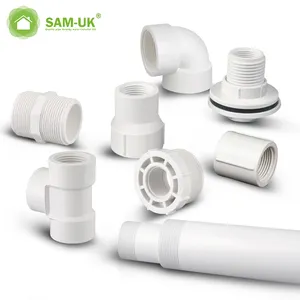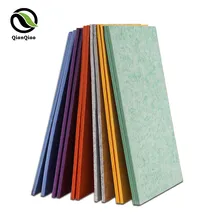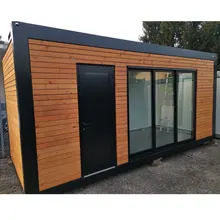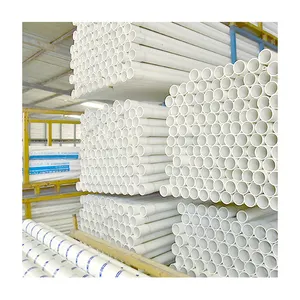Exploring 55mm PVC Pipe
PVC pipes of 55mm diameter are commonly utilized in construction and plumbing for their robustness, affordability, and straightforward installation. These pipes, crafted from polyvinyl chloride—hence the acronym PVC—are favored for various uses such as water delivery, waste management, and agricultural watering systems.
Designed for efficient fluid transport, 55mm PVC pipes excel in systems with substantial fluid throughput. They maintain a sealed environment to prevent fluid contamination and can handle pressure, making them suitable for both subterranean and surface installations due to their resistance to corrosion.
A diverse clientele, including builders, farmers, plumbers, and home improvement aficionados, find these pipes versatile for residential, commercial, and industrial contexts. PVC's lightness and chemical resilience make it the material of choice for scenarios where alternatives may falter.
Diverse Varieties of 55mm PVC Pipe
55mm PVC pipes are available in several forms, each tailored to specific applications:
-
Pressure Pipes: Crafted for pressurized fluid transport, these pipes are integral to water mains, irrigation systems, and pool infrastructure.
-
Drainage Pipes: These pipes facilitate wastewater evacuation from fixtures and feature a wider diameter to handle soiled water.
-
Specialized Pipes: Pipes with enhanced chemical resistance or insulation properties cater to industrial uses or particular projects requiring corrosion-resistant or insulated conduits.
-
Vinyl Pipes: Composed of polyvinyl chloride, these versatile pipes serve a spectrum of purposes, from domestic plumbing to intricate chemical processes.
-
High-Strength PVC Pipes: Formulated for strenuous conditions, these pipes are often used where high-pressure tolerance or subterranean resilience is necessary.
Selecting the Right 55mm PVC Pipe
Choosing the appropriate 55mm PVC Pipe hinges on a thorough understanding of your project's demands and the material's characteristics. Take into account these aspects:
-
Application: The pipe's intended function will dictate your selection, with different types catering to varying pressure demands in irrigation or plumbing.
-
Size: The pipe's diameter should align with the fluid volume requirements, with larger diameters indicating greater capacity but potentially necessitating stronger supports.
-
Pressure Rating: Verify the pipe's capacity to endure the operational pressure consistently, as specified by manufacturers.
-
Material: Although all PVC, certain formulations may offer superior durability and resistance to chemicals or impacts.
-
Environmental Resistance: Pipes exposed to the elements should possess UV protection, while those buried need to be corrosion-resistant.
Companies should also weigh local standards and regulations that might influence their PVC pipe selection, particularly for larger or specialized projects.
55mm PVC Pipe on Alibaba.com
Alibaba.com distinguishes itself as a leading online marketplace, linking businesses with an extensive array of PVC pipes for diverse applications. Its network of verified suppliers spans nearly 5,900 categories, ensuring a reliable and straightforward procurement process for PVC pipes, whether for agriculture, industry, or general plumbing.
The platform's intuitive interface allows for refined searches by size, material, application, thickness, and color, facilitating efficient product identification. Alibaba.com's Trade Assurance service further secures transactions by safeguarding payments until delivery confirmation.
Since 1999, Alibaba.com has been equipping small and medium enterprises with online trade capabilities, becoming a hallmark of international commerce through services that support global business growth and provide customized trade experiences.
Frequently Asked Questions About 55mm PVC Pipe
What is the standard length of PVC pipe?
PVC pipes are typically available in lengths from 3 to 6 meters, with customization options to fit project specifications.
How is PVC pipe measured?
The nominal size, which corresponds to the pipe's outer diameter in millimeters, is the standard measurement for PVC pipes, ensuring compatibility with fittings and system components.
Can PVC pipes be used for both above-ground and underground applications?
PVC pipes are indeed suitable for both above-ground and underground use, with environmental considerations such as soil type and corrosion potential being important for the latter.
What is the difference between pressure rating and working pressure in PVC pipes?
The pressure rating indicates a PVC pipe's maximum pressure capacity, while working pressure denotes the operational pressure at which the pipe functions without failure.
Are there different types of PVC pipes available for specialized applications?
Certain PVC pipes are engineered for specialized uses, including CPVC for hot water systems and electrical conduits for wiring protection.
What factors should be considered when selecting a PVC pipe for chemical applications?
For chemical applications, it's crucial to consider the chemical types, temperature, and pressure the pipe will encounter, selecting a design that resists these specific conditions.
How do I determine if I need a Schedule 40 or a Schedule 80 PVC Pipe?
Deciding between Schedule 40 and Schedule 80 PVC pipes depends on the necessary pressure handling and required durability, with Schedule 80 offering greater thickness and pressure capacity.
What is the significance of the material thickness in PVC pipe selection?
A PVC pipe's material thickness impacts its structural strength and pressure resistance, and should be appropriate for the operating conditions of the application.
Can PVC pipes be painted or used with existing metal pipes?
PVC pipes can be coated or painted if the surface is properly prepared and a suitable adhesive primer is applied.
Is there a standard color coding system for PVC pipes?
While no universal color code exists for PVC pipes, manufacturers often use colors like grey or white to differentiate between pipe types or brands.
How does temperature affect the performance of PVC pipes?
Extreme temperatures can lead to brittleness or softening of PVC pipes, necessitating a material choice that can endure the expected temperature range.
What are some common applications for PVC pipes?
PVC pipes are frequently employed in water supply, waste management, irrigation, and fluid transport in both residential and industrial environments.
Are there environmentally friendly options for PVC pipes?
Certain PVC pipes incorporate eco-friendly additives or are made from sustainable materials, offering environmentally conscious options.
How do I connect PVC pipes to other types of piping systems?
Connections between PVC pipes and different piping systems can be achieved through solvent welding, threading, or flange connections, depending on the application's needs.
What should I consider when choosing between a flexible or rigid PVC pipe?
When selecting between flexible and rigid PVC pipes, consider the ease of installation, resistance to collapse or deformation, and the flexibility required for the application.
Can I use PVC pipes for both cold and hot water systems?
PVC pipes are suitable for both cold and hot water systems, with the caveat that the appropriate type must be chosen based on the material's maximum temperature rating.
What is the expected lifespan of PVC pipes?
PVC pipes generally have a long lifespan, often exceeding 50 years under normal conditions and with proper installation.
How do I ensure that the PVC pipe will fit my existing plumbing system?
Ensuring compatibility with your plumbing system requires checking that the PVC pipe's outer diameter and length match the specifications of your current setup.












































 浙公网安备 33010002000092号
浙公网安备 33010002000092号 浙B2-20120091-4
浙B2-20120091-4